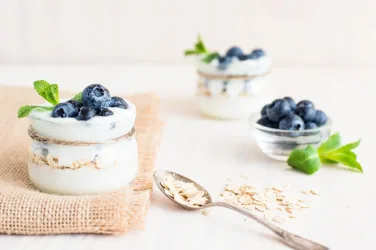
According to the Postgraduate Medical Journal, this unimaginably large number amounts to about ten times more than the number of cells in the entire human body. With our own cells so outnumbered by the organisms inhabiting our gut, we might wonder who’s running things in our body—us, or our intestinal microbiota, otherwise known as “gut flora.”
To some extent, it is our gut flora that determines our health by promoting normal gastrointestinal function, protecting us from infection, regulating our metabolism, and comprising more than 75 percent of our immune system. When our gut flora is off-balance, diseases like obesity, diabetes, rheumatoid arthritis (RA), depression, and chronic fatigue syndrome can result. It’s worthwhile to learn what all the fuss is about—what determines gut health, and what we can do about it. Our understanding of the role of gut flora in overall health is recent. What we’ve learned is that many of the features of modern western civilization contribute to unhealthy gut flora.
The pervasive presence of antibiotics in not only medical care, but food we consume, is one of the most detrimental gut health factors. A 2011 Stanford University study showed that antibiotics cause a devastating loss of diversity and a shift in the composition of gut flora. Like the many species in the rainforest, diverse gut flora creates a healthy environment. Antibiotics kill microorganisms without distinguishing between the good and bad. This amounts to clear-cutting our “internal rainforest” for the sake of eliminating a couple problematic species. Without intervention, the gut never recovers from this loss of diversity after antibiotic use.
Antibiotics are only the beginning. Medications like birth control and NSAID pain relievers, a diet high in refined carbohydrates and processed sugar hinders our gut flora from doing its job.
The gut barrier is the body’s other system for determining what gets in and what is kept out. Our bodies are closed systems that work to keep foreign substances out. Our gut, a passageway running through us, is technically outside the body. What goes in and isn’t digested passes out the other end. The intestinal barrier to foreign substances, the gut barrier, works to protect us from what we eat.
A compromised gut barrier allows undesirable microbes or substances can get through the barrier, in into our bloodstream. This situation is referred to as “leaky gut.” Once foreign substances breach our defenses, the body response by attacking them with its immune system. Studies show that these immune responses play a role in the development of autoimmune diseases such as those already mentioned, and that the integrity of the gut barrier is a major factor in autoimmune disease.
 Now that we’re beginning to understand the problem, we can correct it. For those of us who are exposed to these factors, the first step is to stop consuming toxins. Instead, eat fermentable fibers—starches like sweet potatoes, yams, and yucca, and fermented foods—like yogurt, sauerkraut, and kimchee.
Now that we’re beginning to understand the problem, we can correct it. For those of us who are exposed to these factors, the first step is to stop consuming toxins. Instead, eat fermentable fibers—starches like sweet potatoes, yams, and yucca, and fermented foods—like yogurt, sauerkraut, and kimchee.
One way to restore our gut flora is by creating acidity, which promotes the growth of Lactobacillus bacteria, those with well-known benefits. Although traditional fermented foods are the most natural source of probiotic bacteria, some people don’t care for the taste or aroma. As an alternative, probiotic supplements offer a convenient delivery system for beneficial bacteria. These supplements require no preparation, and they’re easy to carry to dinner or on a trip.
There are many probiotic supplements on the market, many of which can be purchased in powdered or convenient wafer form. Taken with each meal for a week or so, these supplements can restore gut flora to promote better gut health.
All disease begins in the gut. – Hippocrates
A few basic criteria for evaluating supplements should help when deciding which to choose. Check the specific probiotic strains included. Different strains of bacteria have different functions in the gut and concentrate in various places along the digestive tract. Probiotics containing multiple strains tend to be more effective than products containing only one or two strains. To find the best probiotic supplements, look for a combination of at least three of these strains: L. acidophilus, B. longum, B. bifidum, L. fermentum, and L. rhamnosus. Results vary depending on age, sex, and diet, so it’s best to do a bit of research on what’s best for you.









